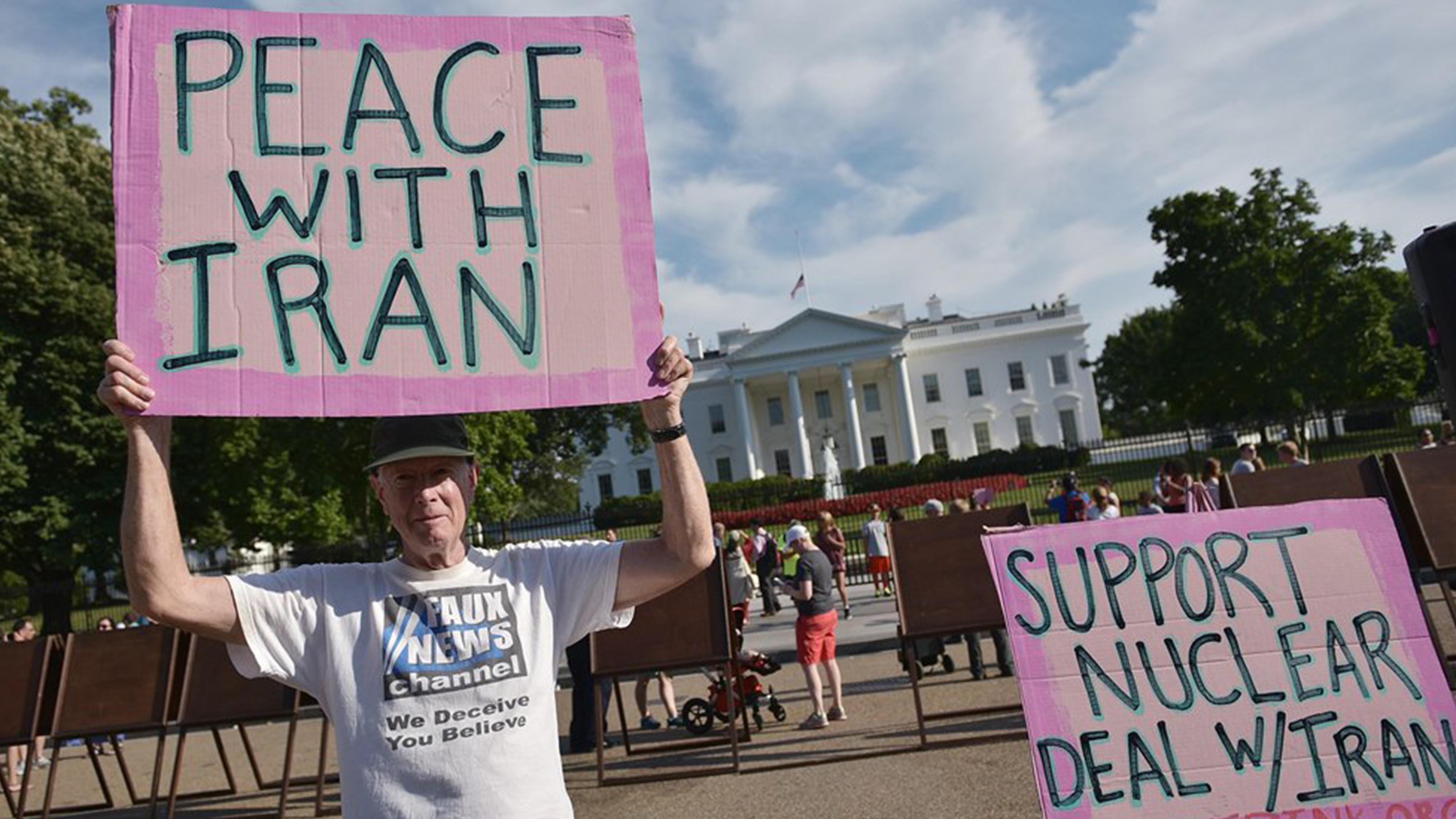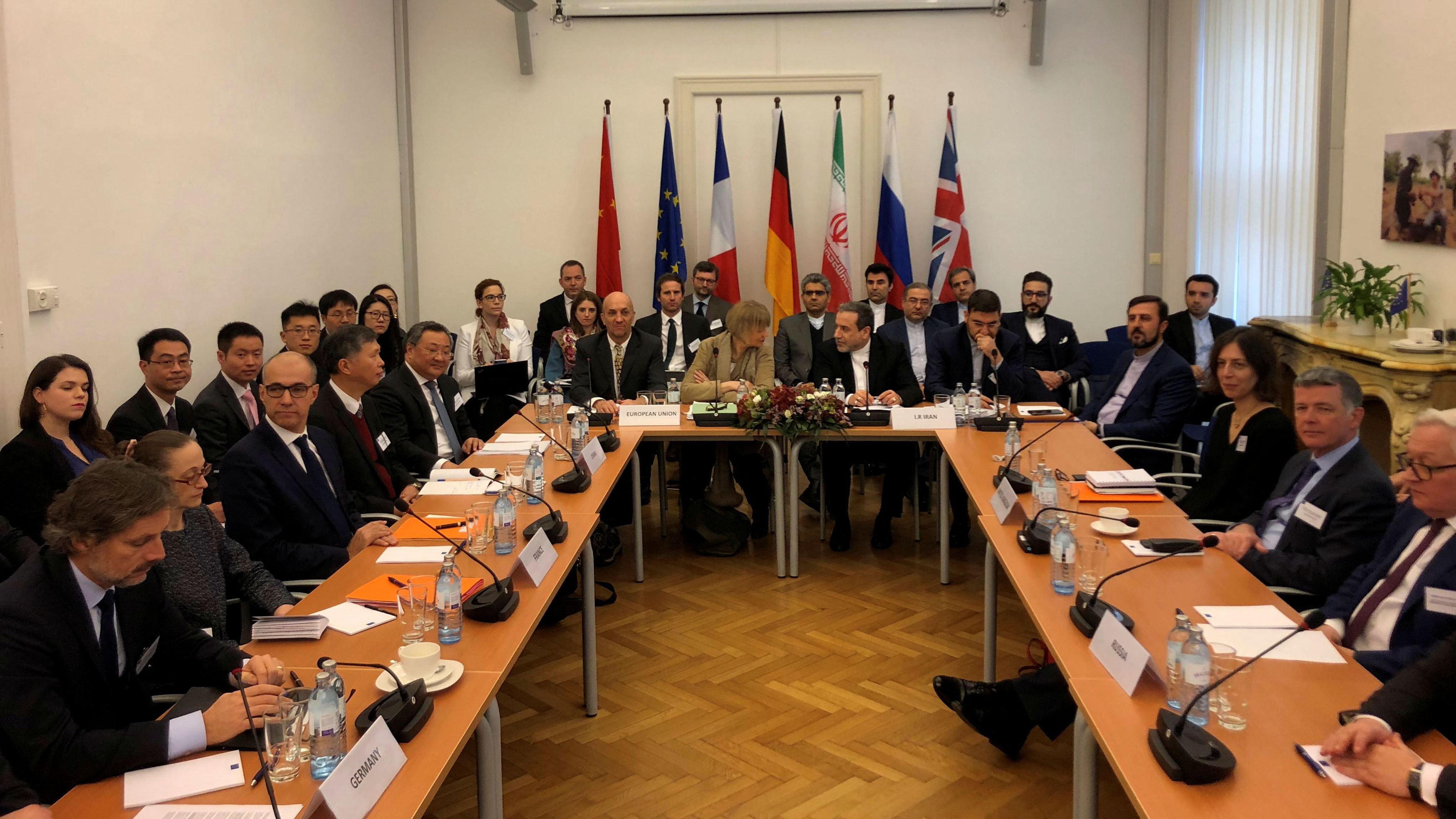
Editor's note: Dr. Wang Jin is a research fellow of Charhar Institute in China and an associate professor from Northwest University in China. The article reflects the author's opinions, and not necessarily the views of CGTN.
The Iranian government and the International Atomic Energy Agency (IAEA) reached a temporary "technical understanding" following the IAEA Director-General Rafael Grossi's trip to Tehran. According to the "understanding", Iran would suspend the cooperation with the Iran nuclear deal additional protocol while continue to cooperate with IAEA's regular inspection measures.
The cooperation with the IAEA regular inspections would be continued until the end of May, according to the newly reached understanding, leaves three months for Iran and the international society.
The Iran government's pressure at home comes from its parliament. In December of the last year, the Iranian Parliament, dominated by hardliner and conservative blocs, passed a bill, the Strategic Action Plan to Counter Sanctions (SAPCS). Although the bill was opposed by Iran President Hassan Rouhani and his moderate bloc from the Iran government, the bill could come into effect after February 23.
The SAPCS highlights the role of European states and the actions taken by Washington. It demands that European states should lift sanctions against Iran over oil and financial sectors in February of 2021 and set Washington's withdrawals of sanctions against Iran as Tehran's precondition to talk and contact the U.S.
The SAPCS requires the Iran government to boost uranium enrichment to the level before 2015 when the Iran nuclear deal was signed and to end cooperation with the International Atomic Energy Agency (IAEA)'s inspection measures if the sanctions are not lifted in late February. The SAPCS becomes an important obstacle between Iran and the U.S. and also threatens the maintenance of the Iran nuclear deal.

A meeting of the JCPOA Joint Commission is underway in Vienna, Austria, December 6, 2019. /Reuters
A meeting of the JCPOA Joint Commission is underway in Vienna, Austria, December 6, 2019. /Reuters
The bill suggests Iran's strong willingness to continue breaking the isolation from the U.S. and Europe, while the methods chosen might be irrational. The enrichment of uranium and the IAEA's inspections are treated as the bargaining chips with both U.S. sanctions and Europe's energy and economic cooperation with Iran, while it is difficult to change the stances held by Joe Biden administration and European states within a short term.
The SAPCS increases difficulties for the possible contacts between Hassan Rouhani-led Iranian moderate groups with the U.S. and Europe. After the Trump administration's withdrawal from the nuclear deal and to restart related sanctions against Tehran in 2018, the Iran government, led by Rouhani and moderate Iranian groups, face strong opposition and pressure at home.
The hardliner and conservative blocs criticize Rouhani's government's weakness in front of U.S. sanctions and maintain that Iran should produce its own nuclear capabilities to deter any external threats, especially from the U.S. and Europe.
However, the stances held by the U.S. and Europe are interactive and are very difficult to revisit in the short term. The Biden administration just came to power a month ago, and it needs time to review policies towards Iran. EU always tries to maintain the nuclear deal but can not determine the attitudes of European energy companies and banks, who are afraid of embroiled by U.S. sanctions against Iran. The SAPCS's demands are difficult to be met by the U.S. and Europe.
The bill suggests the divisions and rivalries inside Iran. It came out of the intensive competition between moderate blocs and hardliner and conservative blocs in Iran's political arena. The June of 2021 would witness the Iranian presidential election, which would be very critical for the future Iranian political power structure.
Rouhani, who would finish his two-term presidency, would give power to the new successor. Both hardliner and conservative blocs hope to have their new president in the upcoming four years, or eight years for two terms. The SAPCS passed by hardliner, and conservative blocs dominated parliament should be perceived as political competition for the future rivalries over the presidential election in June.
Time is very limited for the nuclear deal. Once the SAPCS comes into effect, more uncertainties over the nuclear deal might emerge. The bill's demands are too difficult to be met recently, and to boost enriched uranium and suspend inspections from the IAEA would provoke distrust from the U.S. and might change Europe's stances towards Iran from sympathy to hostilities. A self-isolated Iran might feel more depressed and develop nuclear capabilities to pacify its uneasiness. The crisis would be escalated, and the trust between Iran and the U.S. might be battered.
More efforts are highly needed to salvage the nuclear deal. The contacts between the nuclear deal signatories should be organized, and trust between Iran and the U.S. should be encouraged. There is time, but very limited.
(If you want to contribute and have specific expertise, please contact us at opinions@cgtn.com.)

